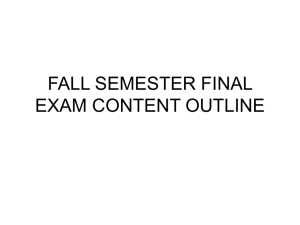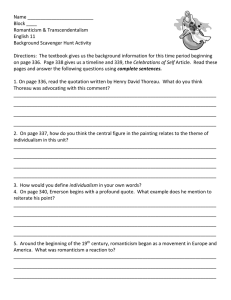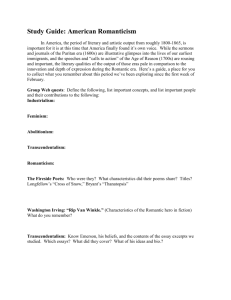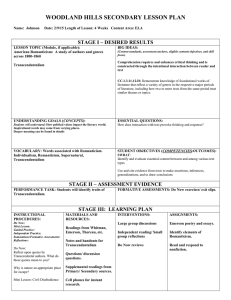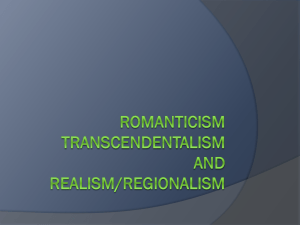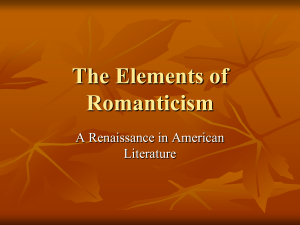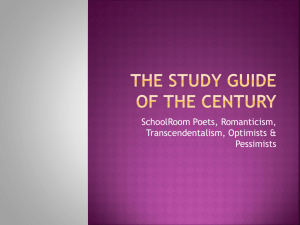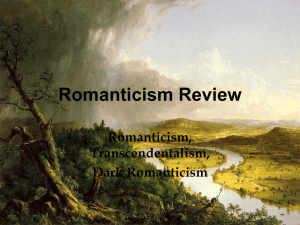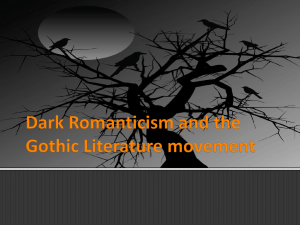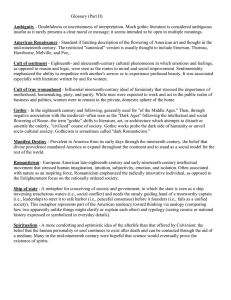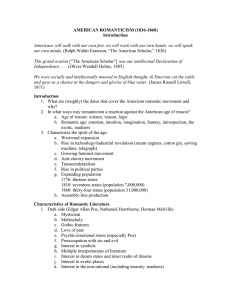Dark Romanticism & Transcendentalism
advertisement
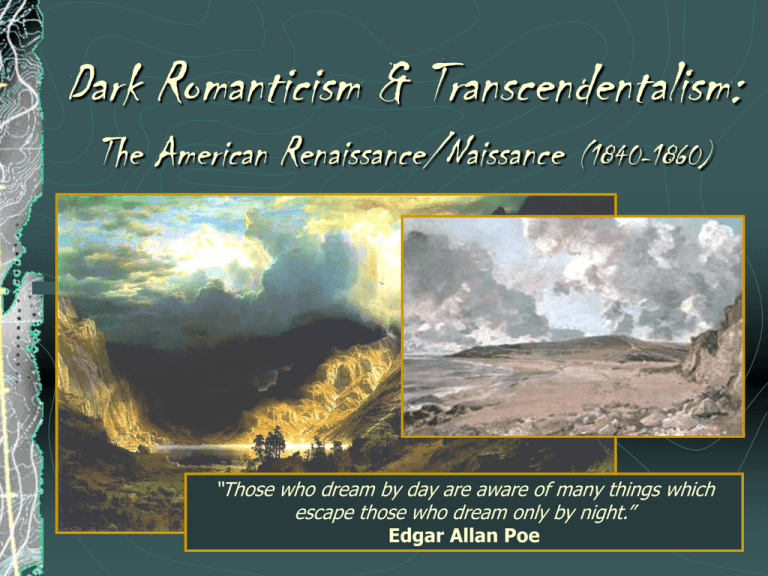
Dark Romanticism & Transcendentalism: The American Renaissance/Naissance Light Romanticism = (1840-1860) Dark Romanticism = Transcendentalism = “Those who dream by day are aware of many things which escape those who dream only by night.” Edgar Allan Poe I. DR Literature (Anti-Transcendentalism): Can the world be reshaped? Synonymous with gothic lit./novel. Where did the DR/Gothic movement originate? A. Pessimistic / Revealed man’s dark side (used dread, terror, suspense to hold attention) B. Psychological / Introspective C. Heavily symbolic D. Believed sin, pain, evil existed (tales of shame, obsession, revenge, madness) E. Nature cruel & unexplainable (ruins, overgrowth, dark forests, wind-swept plains) F. Depressed, insane characters (man is foolish and self-destructive) G. DR Heroes – lofty, haunted, alienated “A foolish consistency is the hobgoblin of little minds, adored by little statesman and philosophers and divines.” --Ralph Waldo Emerson “…evil is a consequence of good, in fact, out of joy is sorrow born.” Edgar Allen Poe G. US lack of tradition = Fear (history of strife / vast wilderness / classless society) H. Modern Impact? 1. Alluring antagonists 2. Persecuted young women 3. Fascination w/criminal process Gothic Architecture II. Transcendental Literature: Still positive but increasingly philosophical (thinking) side of Romanticism. A. Universe & individuals connected B. True reality is spiritual (contemplating nature leads to spirituality) C. Idealists (like Emerson & Thoreau) D. Linked to Concord, 1st US artist’s colony E. Inspired by Immanuel Kant (18th century philosopher) F. Modern Impact? 1. Seeking beauty in life/nature 2. Belief in true love/contentment “Transcendentalism is often composed of nothing more substantial than smoke, moonshine, and raw potatoes.” Nathaniel Hawthorne Uncle Tom’s Cabin Slide Frederick Douglass Autobiography?? Sentimentalism??? “Where does the violet tint end and the orange tint begin? Distinctly we see the difference of the colors, but where exactly does the one first blending enter into the other. So with sanity and insanity.” Herman Melville
